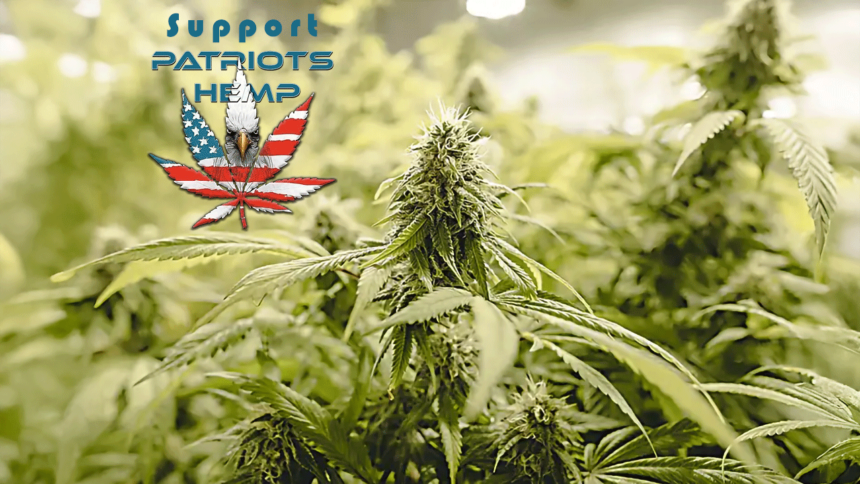After lawmakers in Ireland delayed a vote on marijuana legalization earlier this year in favor of further studying the issue, a special legislative committee on drug policy has published an interim report with nearly 60 recommendations, calling for changes such as the limited legalization of marijuana and the decriminalization of personal use and possession of all illegal drugs.
The new report, released on Tuesday, is the product of the Oireachtas Joint Committee on Drugs Use, which was formed to consider cannabis legalization and other drug policy issues following the release of a citizen commission report in January that recommended broadly decriminalizing drugs and implementing harm reduction programs.
Gino Kenny, the chair of the committee and a member of Ireland’s lower house of parliament, told Irish Examiner that the proposal could allow cannabis clubs where members can purchase small amounts of marijuana grown on a nonprofit basis, which some other European countries permit, but may also allow for broader commercial legalization.
“It’s important that this is implemented,” Kenny told the paper, emphasizing his perspective that the government should adopt a “health-led approach” to drug use.
Today the Joint Committee on Drugs Use published its Interim Report with 59 recommendations. The Committee formed to examine and respond to the Citizens’ Assembly on drugs use in Ireland. Report available here: https://t.co/EKWwNrNjXH #SeeForYourself https://t.co/tchnT83mrC pic.twitter.com/2q6krO0FFX
— Houses of the Oireachtas – Tithe an Oireachtais (@OireachtasNews) October 22, 2024
Indeed, many of the 59 recommendations from the special committee focus on shifting the paradigm around drug control from one of punishment and stigma to one of health and harm reduction. That’s the core of the first six recommendations laid out in the committee’s description of its interim report, which includes findings that “the stigmatisation of drug use and the shaming of drug users are a source of significant harm” and that “the goal of drug policy should be to reduce harm and eliminate stigma.”
To that end, it says, “the decriminalization of possession for personal use should apply equally to all illicit drugs.” And while “people should be offered all supports and health resources that are required,” it adds, “no person should be criminalised for not availing of a supportive intervention.”
When it comes to marijuana, the committee is calling on health and justice officials to “undertake a body of research into how a regulated drug market could operate in Ireland beginning with cannabis, and how Ireland can incorporate and implement the learnings of other jurisdictions that have taken positive steps in this regard.”
The report specifies that the country should consider reforms “with particular reference to Spain, Malta, and Germany in the development of an Irish not for profit regulated cannabis market.”
The body is also calling for expansion of the country’s medical marijuana program “to ensure that more people affected by chronic illness can access cannabis in circumstances where other treatments have failed to relieve symptoms.”
Today the Joint Committee on Drug Use published its interim report. It makes a number of key recommendations and carefully considers the Citizens Assembly’s findings. Some of the main points- Repeal Section 3 of the Misuse of Drugs Act- Not for Profit regulated cannabis market. pic.twitter.com/kMPRBK4sXJ
— Gino Kenny TD (@Ginosocialist) October 22, 2024
The recommendations also advise that local authorities and An Garda Síochána—the country’s national police force—”are supported and empowered in strongly discouraging and reducing consumption in public areas.” The committee suggested that “specific trauma and harm reduction training be provided to An Garda Síochána and local authorities, to inform their work with individuals and communities affected by drug misuse and addiction.”
Kenny, the committee chair, noted that the body’s recommendations are “very clear that the supply and sale of drugs should remain illegal” and acknowledged that drugs can cause “huge damage” to individuals, families and communities, especially among already disadvantaged groups. But he said the committee was in broad agreement that criminalizing substances is the wrong approach.
“There’s still a lot to look at of course, but between the work done by the Committee and the Citizens’ Assembly, it’s clear that there is a consensus that criminalising and prosecuting the use of drugs for personal drug use is a waste of money and is very detrimental to anyone convicted,” he said in a statement.
After months of study, he added, “there’s no excuse for a new Government to say that issues around the decriminalisation of drugs for personal use haven’t been discussed properly. Both the Citizens’ Assembly and the Oireachtas Joint Committee on Drugs Use have looked at the issue in detail.”
When the committee was first being formed, Ryan McHale, executive committee member of the Irish drug policy reform organization Crainn, told Marijuana Moment that he felt the extra step was a “delay tactic from the Irish Government,” which he called “disappointing given the clear calls from the Citizens’ Assembly and overwhelming public support for the measure.”
“The government are aware of the overwhelming support which is why they didn’t outright oppose the bill like they did in 2013, which was the last attempt to liberalize cannabis laws,” McHale said. “While there appears to be a shift from government in terms of changing Ireland’s drug laws, they have not yet committed to any substantial legal change.”
“This delay will mean that hundreds of people will be criminalized for personal possession of cannabis while the Irish government ponder the political effectiveness of reform,” he added. “We cannot wait anymore and the Citizens’ Assembly have been clear in their calls for change to the harmful status quo.”
Big read on the Drugs Committee report
Full decriminalisation
Non-profit cannabis regulationRead below https://t.co/23BOFu3VQu
— Crainn (@r_crainn) October 22, 2024
TD Paul Murphy said the government’s proposed delay is “simply an attempt to kick the can down the road.”
“They talk about a health led approach to drugs,” he said. “Now it’s time to walk the walk.”
The cannabis legalization bill from Kenny that prompted the committee’s formation was first introduced in 2022.
Ireland’s taoiseach—or prime minister—Leo Varadkar told lawmakers earlier this year that he agrees prohibition doesn’t work, as evidenced by prohibition periods in Ireland that created illicit markets with “impure” alcohol products.
“In my view, drug use and misuse by individuals should be seen primarily as a public health issue and not a criminal justice matter,” Varadkar said. “I certainly think that shaming people and blaming people and criminalizing people isn’t an effective policy.”
The Citizens’ Assembly on Drugs Use considered marijuana legalization as part of its work last year, but a recommendation to enact the reform came up short by one vote.
A year ago, the citizens’ group posted summaries of 36 policy recommendations online—the culmination of what the body’s chair, Paul Reid, called “the most comprehensive, wide-ranging, and representative discussion on all aspects of drugs use and drugs policy that has ever taken place in Ireland.”
The group’s overarching message, Reid said in a statement at the time, was that lawmakers must “take a much more ambitious and progressive approach to dealing with drugs in Ireland.”
“Ultimately, it will be up to the Oireachtas to implement what the Assembly has called for,” he said, referring to Ireland’s national parliament. “But if they do, this will not only change the national policy and approach, it will also change people’s lives. For the better.”
Image element courtesy of Ron Cogswell.



















